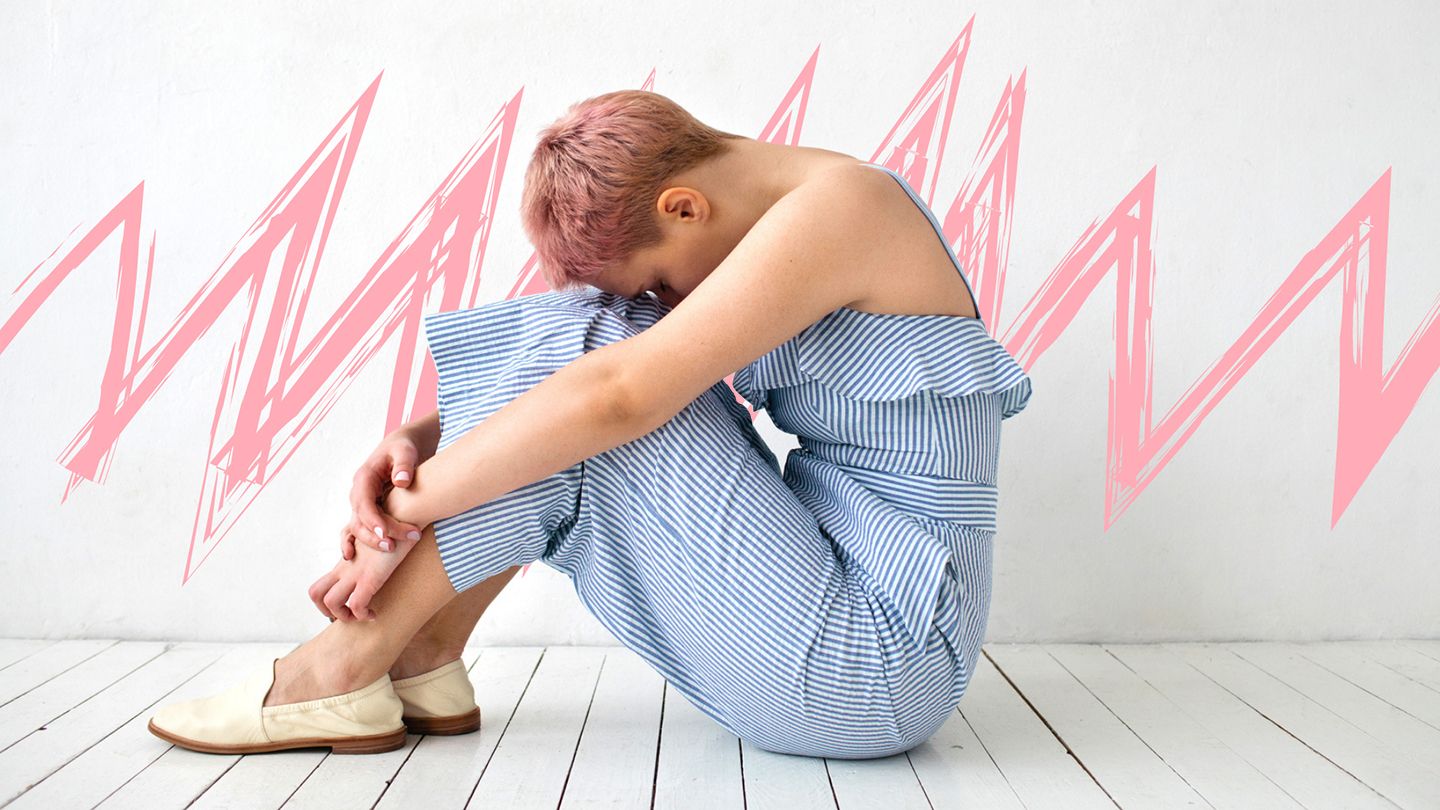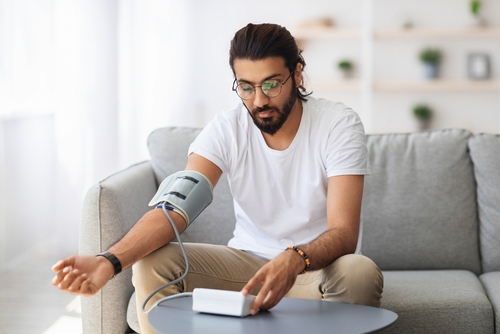Can High Blood Pressure Cause Headaches?
Does hypertension cause headaches? This is a common question I get in the office. Have you noticed frequent headaches at times when your blood pressure was high? If so, hypertension headache is possible. If you’ve ever had a hypertension headache with pulsating pain throughout the head, you know how important it is to immediately find effective relief by decreasing your blood pressure to a normal range. This improves head pain, but also lowers the risk of heart attack, stroke or TIA, which are often caused by high blood pressure. In this blog post, we’ll look at the link between high blood pressure and headaches, find out what causes them, review symptoms of hypertension headaches, and discuss hypertension headache treatments.
What Is Hypertension Headache?
High blood pressure, also known as hypertension, is a common medical condition. Technically, the definition of hypertension is a blood pressure of 140/90 mm hg or higher. Pre-hypertension is a systolic blood pressure (top number) of 120-139 over a diastolic blood pressure (bottom number) of 80-89. Optimal blood pressure is 120/80 or less. It’s important to get checked out by a doctor if you think you may have hypertension because high blood pressure can lead to serious health problems like heart disease, stroke, and kidney disease (thus, it’s called the “silent killer”). In fact, it is the number one cause (and easily treatable) cause of stroke. But will high blood pressure cause headaches? The answer is yes it can, but there are other variables and headache types that also need to be taken into account.
Hypertension headaches are common symptoms of hypertension, but they are often nonspecific and dull aching in character, similar to dehydration headache or tension type headaches. The symptoms of a hypertension headache can be similar to other kinds of headaches such as milder migraine-type throbbing or pulsating pain often throughout the sides of the head or as a generalized headache, but sometimes can be localized in the back part of your head. They can also be tension-type pressure headaches behind your eyes, in the temples or throughout the head like a band around the head. Some hypertension headaches may make people feel nauseous or dizzy when standing up quickly after sitting down for long periods. Blurry vision can also be associated with hypertension headaches. Sometimes the headaches can increase while lying down because blood flow may increase to the head since the effects of gravity pulling the blood downwards is less in this position. Any of these symptoms mean that it’s time to see a doctor!
Symptoms Of Hypertension Headache
You may be asking yourself, “how do I know if my headache is from high blood pressure, and what does a high blood pressure headache feel like”? Well, here are a few clues that could suggest the hypertension as a headache culprit.
- Headaches that start in the morning. After lying down all night, more blood is distributed throughout the body and the head since you’ve not gotten out of bed for gravity to pull it down towards the feet. This increased blood volume to the brain can translate to increased blood pressure.
- Lying down often seems to make your head hurt worse, for the same reasons as above.
- Headaches are worse when you move your eyes or do physical activity.
- Headaches are worse when you bend over (and increased blood rushes to the head). For example, if you have a headache and then tie your shoes or bend over to pick something up off the floor, it may indicate hypertension headaches.
- Headaches consistently occur when you feel your blood pressure is high. Keep a blood pressure readings and headache diary. Establish a baseline blood pressure that you tend to average at when there is no headache. Also track what your blood pressure looks like during periods of headache. This could be a clue for hypertension headache if dramatically higher. Keep in mind though, any pain, including from a migraine, can increase blood pressure as well. So sometimes it may be hard to tell which is causing which.
- The headache is usually throughout the whole head (holocephalic) and may be a pulsating, pressure, or dull aching type of headache. Hypertension headache is not typically a severe headache. If you are having a severe headache along with high blood pressure, it should be checked urgently with a doctor. If there is associated chest pain, shortness of breath, visual disturbances, or any neurological symptoms, this could suggest severe hypertension called a hypertensive emergency, and it is truly a medical emergency requiring immediate medical attention.
Causes Of Hypertension Headache
What causes hypertension headaches? Well, it can be caused by many things, as outlined below. The good news is that many of the causes of hypertension headache can be effectively managed with simple lifestyle changes which lessen high blood pressure symptoms including headache.
Stress
The stress hormone cortisol from the adrenal glands causes blood vessels to narrow and makes your heart beat faster. This combination can lead to a headache, especially if you’re not getting enough sleep or eating well.
Lack of sleep or poor quality sleep (insomnia)
Sleep deprivation can trigger headaches because it interferes with how your body regulates blood pressure and releases hormones like cortisol, affecting pain sensitivity in the brainstem area responsible for triggering migraines.
Lack of regular exercise
Lack of regular exercise is a known contributor to the development of many health conditions including migraine, hypertension, and of course, hypertension headaches. When individuals lead sedentary lifestyles and do not engage in physical activity, their overall cardiovascular health may be compromised. Regular exercise helps to improve blood flow, reduce blood pressure, and maintain a healthy weight. Without exercise, the body becomes more prone to hypertension, which can lead to headaches as a result of increased pressure in the blood vessels. Therefore, incorporating regular physical activity into one’s routine is crucial for preventing hypertension-related headaches.
Poor diet
Eating too much of the wrong foods can lead to obesity, hypertension, and subsequently headaches. Excess salt intake is a common cause of hypertension. Eating excess junk food or sugary sweets that spike your blood sugar levels and drinking alcohol also contribute to hypertension. Heavy drinking over time can lead to hypertension and, in turn, headaches often associated with it.
Treatment For Hypertension Headaches
Blood pressure medication
If hypertension cannot be controlled by conservative lifestyle change measures such as diet changes, weight loss, and exercise, then high blood pressure medications are the next best way to prevent hypertensive headache. If there is a family history of hypertension, sometimes these treatments become unavoidable no matter how good of lifestyle changes you are following. Uncontrolled blood pressure should always be treated as quickly as possible to avoid dangerous levels. The goal of blood pressure medicines is to prevent blood pressure rises and blood pressure spikes that may occurring.
Headache medication
If you have a headache, taking OTC pain medicines such as ibuprofen or acetaminophen can be tried. However, these are not typically very effective because the mainstay of treatment is treating the underlying cause of the headache… the hypertension. In addition, taking excess NSAIDs can also increase your blood pressure.
Rest
Rest as much as possible during the day and night. It will help you feel better and reduce stress levels in your body. Relaxation and rest helps to lessen cortisol levels, and thus blood pressure.
Stress reduction
Do something relaxing, such as listening to music or taking a bath with lavender oil added to it (this helps calm down your nervous system). You can also exercise regularly which helps to lessen stress. Yoga and meditation are great ways to assist in stress reduction.
Avoiding triggers
Avoid alcohol consumption since it increases blood pressure levels which can lead to hypertension headaches if consumed in excess. Also avoid smoking cigarettes because they contain nicotine which causes constriction of blood vessels throughout the body, including those in our head associated with headaches.
Avoid stressful situations as much as possible, such as work-related tasks or arguments with loved ones (yes I know, easier said than done!). Avoid Aunt Betty at the big family Thanksgiving dinner so you don’t have to explain to her AGAIN why it is that you’re still single. Having a busy schedule can lead to increased levels of stress hormones like cortisol which can trigger headaches in some people.
Dietary changes
Eating healthy foods such as fruits and vegetables, and diets according to American Heart Association guidelines is very important. Avoid fried foods and sweets if possible because these types of food tend to increase blood sugar and salt levels which in turn leads to increased blood pressure levels over time. Some studies have shown that people who consume more than five servings per week of these unhealthy foods tend to have higher blood pressure levels.
Conclusion
So can hypertension cause headaches? The answer is yes it can. However, there are other variables and other headache types that also need to be evaluated for before assuming this. Managing hypertension headaches takes a multifaceted approach that includes changing your lifestyle, getting medical help, and getting advice from a healthcare provider. Ultimately, the treatment of hypertension headache is maintaining normal blood pressure control. You can successfully control your blood pressure and reduce the frequency and severity of hypertension headaches by changing your diet, exercising regularly, learning how to deal with stress, and taking prescribed medications when conservative measures are not helping. If your headaches are related to your high blood pressure, they will naturally subside once blood pressure levels normalize.
IF YOU HAVE HEADACHE, MIGRAINE, OR FACIAL PAIN AND ARE LOOKING FOR ANSWERS ON ANYTHING RELATED TO IT, A HEADACHE SPECIALIST IS HERE TO HELP, FOR FREE!
FIRST, LET’S DECIDE WHERE TO START:
IF YOU HAVE AN EXISTING HEADACHE, MIGRAINE, OR FACIAL PAIN DIAGNOSIS AND ARE LOOKING FOR THE LATEST INFORMATION, HOT TOPICS, AND TREATMENT TIPS, VISIT OUR FREE BLOG OF HOT TOPICS AND HEADACHE TIPS HERE. THIS IS WHERE I WRITE AND CONDENSE A BROAD VARIETY OF COMMON AND COMPLEX MIGRAINE AND HEADACHE RELATED TOPICS INTO THE IMPORTANT FACTS AND HIGHLIGHTS YOU NEED TO KNOW, ALONG WITH PROVIDING FIRST HAND CLINICAL EXPERIENCE FROM THE PERSPECTIVE OF A HEADACHE SPECIALIST.
IF YOU DON’T HAVE AN EXISTING HEADACHE, MIGRAINE, OR FACIAL PAIN DIAGNOSIS AND ARE LOOKING FOR POSSIBLE TYPES OF HEADACHES OR FACIAL PAINS BASED ON YOUR SYMPTOMS, USE THE FREE HEADACHE AND FACIAL PAIN SYMPTOM CHECKER TOOL DEVELOPED BY A HEADACHE SPECIALIST NEUROLOGIST HERE!
IF YOU HAVE AN EXISTING HEADACHE, MIGRAINE, OR FACIAL PAIN DIAGNOSIS AND ARE LOOKING FOR FURTHER EDUCATION AND SELF-RESEARCH ON YOUR DIAGNOSIS, VISIT OUR FREE EDUCATION CENTER HERE.




